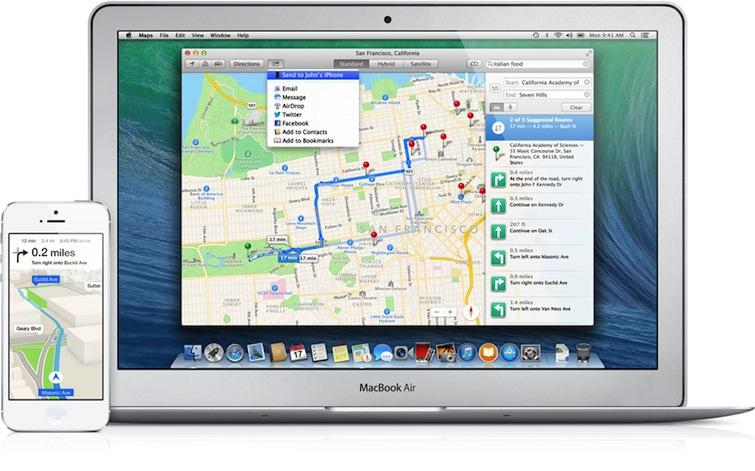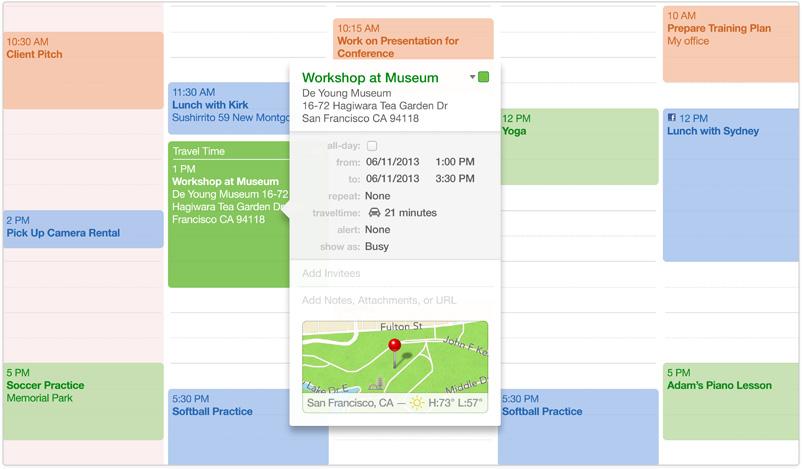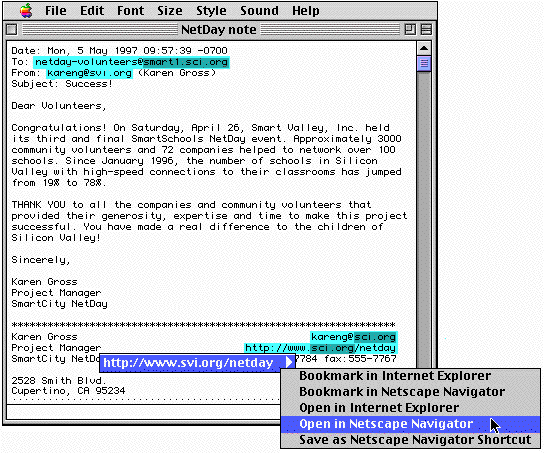While providing an overview of the new Maps app for Macs in OS X Mavericks and showing Calendar integration with location services to calculate and schedule travel time for meetings, Apple didn't specifically highlight new Apple Data Detector features.

Source: Apple
"With OS X Mavericks, maps are built into Mail, Contacts, and Calendar, too," Apple notes on its preview page. "So wherever you see an address, you can see it on a map, just like that."

Source: Apple
Maps integration with Apple Data Detectors
Apple Data Detectors are an invention the company first added to the Mac OS 8 in 1997 as a way to highlight bits of data (such as emails, URLs and phone numbers) within documents for subsequent user interaction.

Apple then slept on the technology until OS X Leopard in 2008, when it returned to the desktop as automatically generated links that enabled users to turn, for example, a date into a Calendar event or an address into to Contact record.
That same year, iOS 3 similarly enabled Apple's mobile devices to highlight numbers and emails into actionable links, a feature that was widely copied by Android licensees. Apple's clear patent on the technology has made it one of the very few inventions it has effectively used to stop infringement.
OS X Mavericks extends the role of Apple Data Detectors to integrate with its new Maps app when working with locations.
Selected addresses in Mail, for example, can now popup an integrated Maps view for obtaining directions or adding the address to Contacts, as highlighted in a tweet by Benedict Evans (below).
Maps in OSX Mail. Very nice. pic.twitter.com/TfqCVBqqat
— Benedict Evans (@BenedictEvans) June 28, 2013
In addition, mobile devices running iOS 7 not only highlight addresses but draw upon these "data detections" when performing searches in Maps.
For example, after getting an email including a given address, a user can open Maps and begin entering the address and the system will suggest the detected address as a result.
In the above image, iOS 7 Maps' first autosuggestion in an address search calls up a location included earlier in an email from Anthony J., before a direct match on the initial portion of the entered address would be useful.